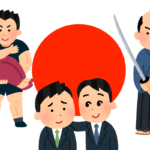
In Japan, the process of marriage is easy as all you have to do is submit a marriage notification to the local government office, but in the Philippines, it takes more time and effort.
As a Japanese citizen, I have to prepare a copy of my family register to prove that I am not married. I take this copy of my family register and my passport to the Japanese Consulate to apply for a certificate of legal capacity to get married. The next day, I go back to the Japanese Consulate to get a Certificate of Legal capacity to get married in English.
I go to the NSO (National Statistics Office) in the Philippines to apply for and receive a document to prove that I am not married in the Philippines. This is given to me on the spot.
The next step is to go to City Hall to apply for a marriage license.
Before submitting the application, the couple must attend a marriage seminar hosted by the city hall.
After attending the seminar, the couple will be able to apply for a marriage license from the City Hall.
A 10-day notice will be given to the local civil registration office to see if anyone objects to the couple's marriage, and if there are no objections, a marriage license will be issued.
If you don't have a wedding within 120 days of this marriage license being issued, it will be invalidated. If it's invalid, you have to start over again from the beginning. In this way, the process is much more time-consuming than it is in Japan.
The only one of these procedures that I enjoyed was the marriage seminar.
It was held in a fairly large room at City Hall with dozens of couples who are about to get married, and I was exempted for half a day because of my age. I took the whole morning.
The seminar is like a general guide to married life: men and women have different roles (men should build a solid financial foundation for their lives) and different interests for men and women (e.g., men are interested in politics, society, sports, and other active things, while women are interested in life and their surroundings), so they should understand and respect each other.
It was a very thorough seminar that even taught me how to use contraceptives, and I thought it would be better to do this in Japan as well.
At the seminar, the lecturer told the men to remember this one thing.
It is to say "I love you" every day after you get married. And don't forget to give them a hug.
Don't forget birthdays, anniversaries and other events that involve you both.
I don't think there are almost no Japanese couples who say "Ai site masu (I love you)" on a daily basis. I don't say "I love you" to my wife in Japanese either. I feel embarrassed.
On the other hand, I don't have any resistance to saying "I love you" out loud or writing it in an email.
It's easy to say "I love you" as if it's a greeting.
Even if he says it's casual, I say it with all my heart. It's a strange thing.
If you have a partner, sometimes it's good to say I love you…









